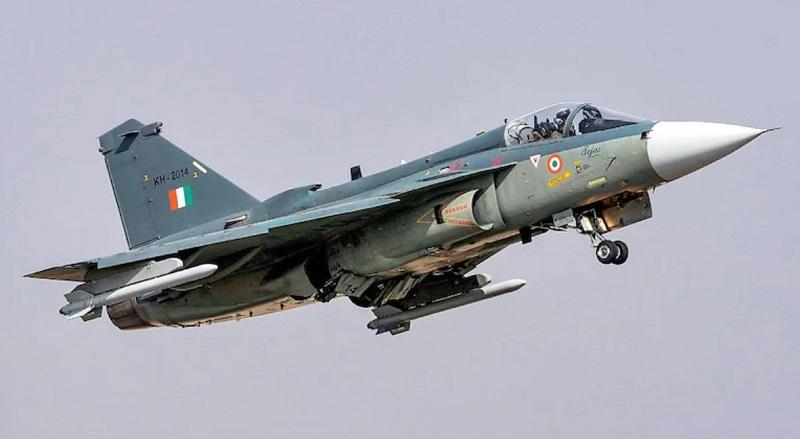Indigenous LCA Tejas fighter jets will be equipped with Joint Direct Attack Munition Extended Range (JDAM-ER) precision-guided bombing kits which would help the Indian Air Force target enemy positions with pinpoint accuracy. Procurement of JDAM-ER will occur under the US Foreign Military Sales (FMS) programme. Amid an ongoing conflict with China along the northern borders. The acquisition of JDAM kits under delegated financial powers by the Air Force will enable Tejas fighters to take out enemy bunkers and runways at 80 km and distances beyond. India has placed orders for JDAM to enhance the capabilities of its LCA Tejas fighter. It would enable the Tejas to carry out Balakot-like airstrikes with more accuracy and precision.
The HAL Tejas is an Indian, single engine, delta wing, multirole light fighter designed by the Aeronautical Development Agency (ADA) in collaboration with Aircraft Research and Design Centre (ARDC) of Hindustan Aeronautics Limited (HAL) for the Indian Air Force and Indian Navy. It came from the Light Combat Aircraft (LCA) programme, which began in the 1980s to replace India’s ageing MiG-21 fighters but later became part of a general fleet modernisation programme. In 2003, the LCA was officially named “Tejas”. It is the smallest and lightest in its class of contemporary supersonic combat aircraft. India has already activated two LCA Tejas fighter squadrons and is looking to get four more in a couple of years. They will replace the outgoing MiG-21 inventory.

The Joint Direct Attack Munition (JDAM) is a guidance kit that converts unguided bombs, or “dumb bombs”, into all-weather precision-guided munitions. JDAM-equipped bombs are guided by an integrated inertial guidance system coupled to a Global Positioning System (GPS) receiver, giving them a published range of up to 15 nautical miles (28 km). JDAM-equipped bombs range from 500 pounds (230 kg) to 2,000 pounds (910 kg). The JDAM’s guidance system was jointly developed by the United States Air Force and United States Navy, hence the “joint” in JDAM. When installed on a bomb, the JDAM kit is given a GBU (Guided Bomb Unit) identifier, superseding the Mark 80 or BLU (Bomb, Live Unit) nomenclature of the bomb to which it is attached.
In 2009, Boeing announced that it will jointly develop the Joint Direct Attack Munition Extended Range (JDAM-ER) 2,000 lb (910 kg) version with South Korea. The wing kit will triple the range of JDAM to 80 km for the same accuracy, and will cost $10,000 per unit. The JDAM-ER was meant to improve upon laser-guided bomb and imaging infrared technology, which can be hindered by bad ground and weather conditions. Laser seekers are now being fitted to some JDAMs. The Powered JDAM combines a 500 lb bomb with a wing kit and a propulsion module, giving it the range of more sophisticated missiles through a low-cost engine while being cheaper through not have a stealthy shape or the ability to conduct low-altitude flights.













